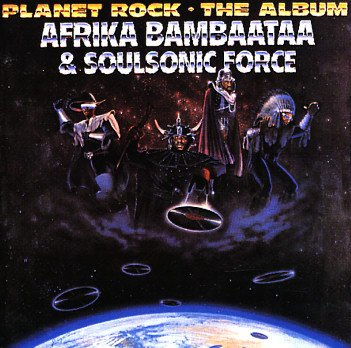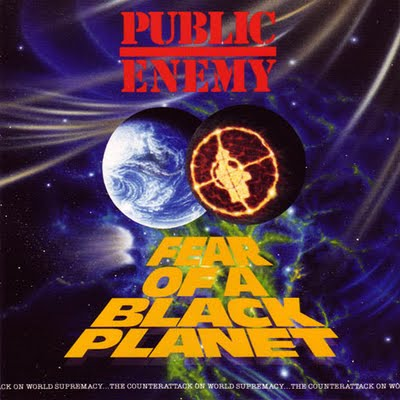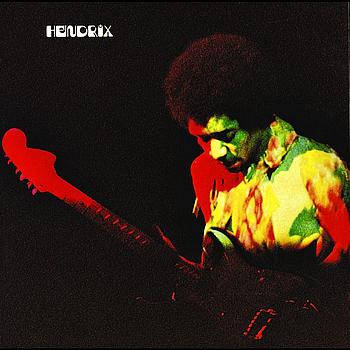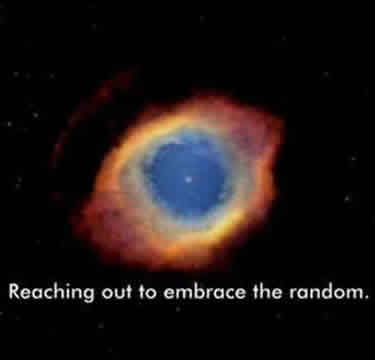|
WORKS & ANALYSIS |
“Planet Rock” by Afrika Bambaataa feat. Soul Sonic Force |
 |
With the use of space-like samples and faster drumbeats, Afrika Bambaataa produces a fast flowing piece filled with jumps and accents. This song is considered by many to have given direction to the Hip Hop and dance scenes. Without this song, the music of the past two decades would be vastly different than what it is now. The unusual use of heavy pulsating noises and chord progressions on a synthesizer take the listener to a different place. When the emcees incite the audience to get involved in the performance, they further lengthen the gap between reality and estrangement. The recitation of rhythmic chants and rhymes allows the listener to simultaneously look at his or her reality in a different sort of way. The song eventually concludes with a conventional drumbeat playing by itself, slowly bringing the listener back to the reality of here and now. |
“Sketchbook” by Flying Lotus |
“Sketchbook” would be an example of the result of Afrika Bambaataa’s influence. The ‘melodic’ component of the song is done entirely on the synthesizer with a Hip Hop style breakbeat in the foreground. The song starts off with a 3-note chord progression and a distorted female voice that says
“I have no idea what’s going on, I just want to hear the beats…”
This relates to Professor Csicsery-Ronay’s argument that post 20th century music has a large focus on going against the traditionally elitist nature of music of the past. Before, only the privileged in talent and/or assets could truly appreciate, enjoy, and take advantage of what Western music had to offer. The strange woman at the beginning of this song implies that she is unaware of her surroundings, and merely wants to be immersed in the sound. This arguably illustrates the purest form of musical appreciation – allowing the sounds to overwhelm you cognitively. |
 |
“Fear of a Black Planet” by Public Enemy |
 |
“Fear of a Black Planet” uses the revolutionary 1980’s method of scratching samples to form new sounds. Horn, vocal, and blues guitar recordings were sampled and scratched over, expressing a polarity of a revolutionary and almost futuristic style of instrumentation partnered with the nostalgia of utilizing acoustic recordings of the past. The title of the album is also Fear of a Black Planet. Every song within the album is thus wrapped within an alternate reality, while the song with the same title epitomizes this alternate reality. The lyrics examine the world of the present from the perspective of a supposed future. The partnership between the lyrics and the music cultivates an altered reality for the audience. Through this lens, the listener scrutinizes his/her status quo from a different viewpoint. |
Examples beyond the realm of electronica and hip hop: |
"Machine Gun" by Jimi Hendrix |
Jimi Hendrix harnessing feedback – a byproduct of an electric guitar amplifier – and controlling it to make music: |
 |
 |
Following Hendrix’s footsteps, the advanced use of guitar and bass distortion partnered with complex and aggressive rhythm patterns focus on telling more of a story than what meets the eye. |
|

